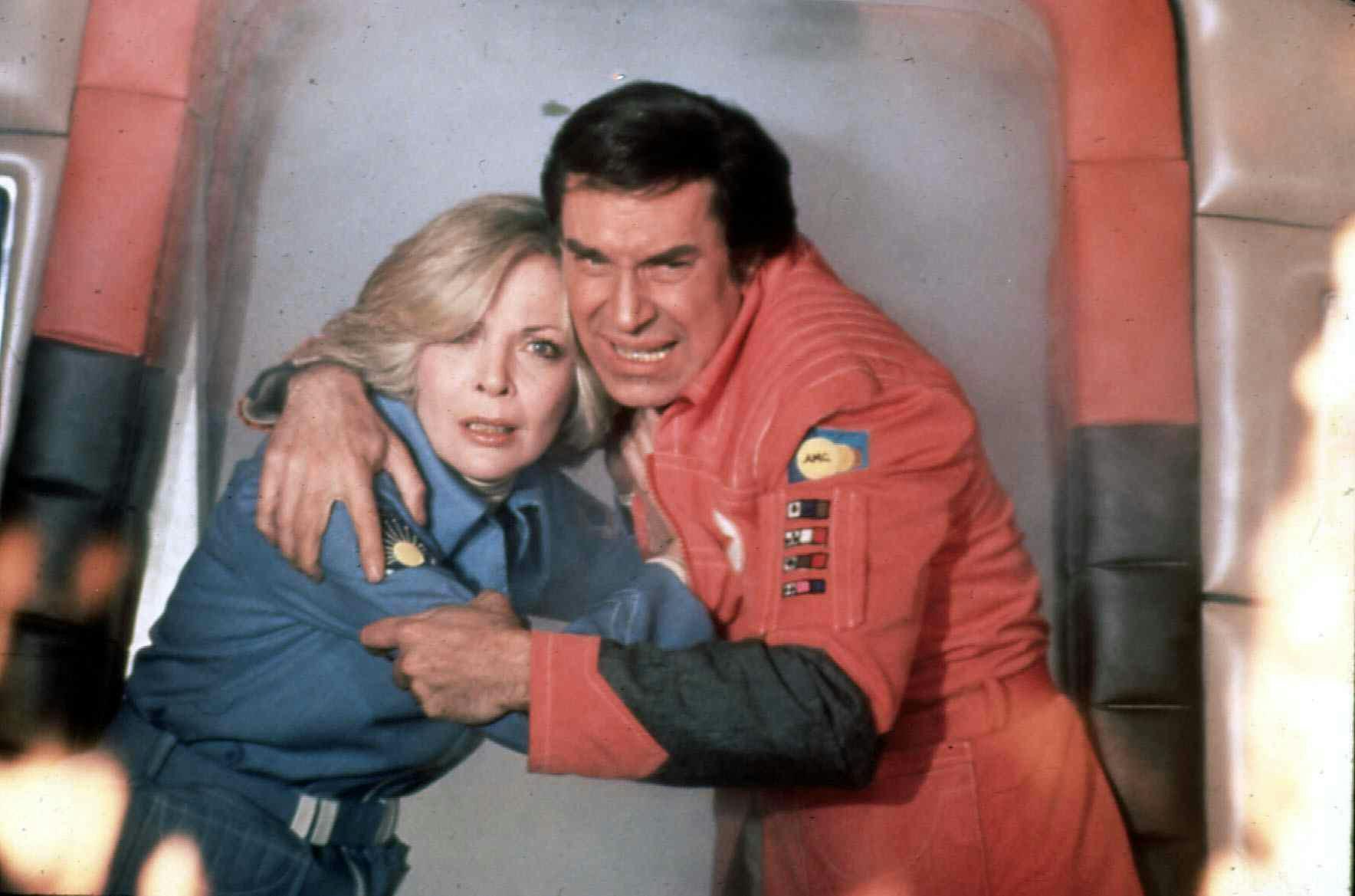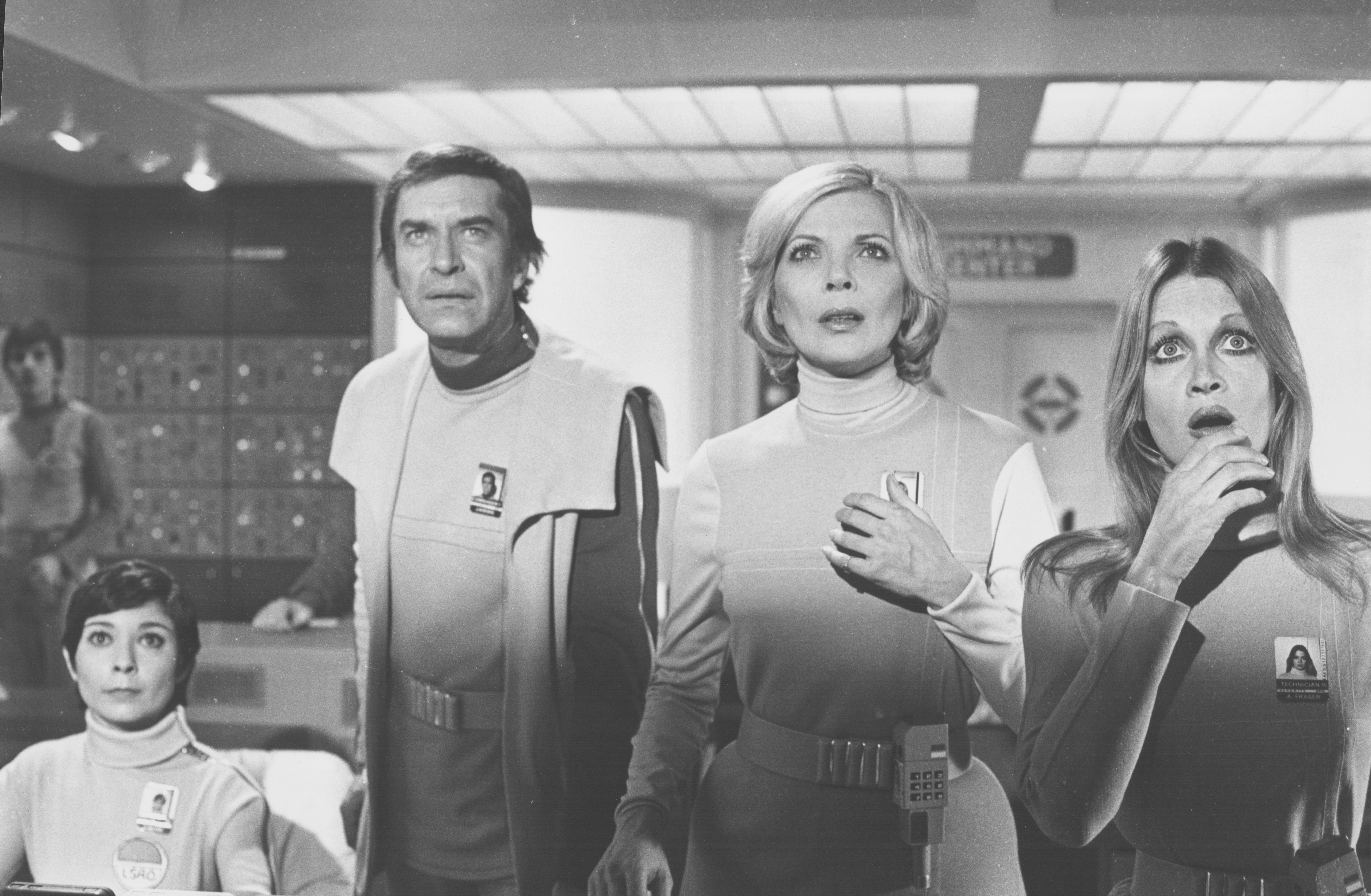
It’s hard to imagine a time before science fiction became the ubitiquous genre it is now. Even a decade like the now-distant 1990s has more in common with TV and movie sci-fi today than say, the 1970s. While most pop culture enthusiasts are aware that Star Trek brought sci-fi into the mainstream in the 1960s — and that those reruns codified a fandom phenomenon in the 1970s, what tends to be overlooked is the ways in which the genre evolved in the years between Trek and the debut of the first Star Wars film in 1977. While science fiction had been primarily a literary fandom phenomenon prior to the 1960s, both Star Trek and Doctor Who helped usher in the first wave of what we think of as modern filmed sci-fi today.
But what bridged the gap between that era and Star Wars? Of all the curious and quirky aspects of sci-fi in the 1970s, perhaps the most important, and underrated, is all about the little moonbase that could: Space: 1999. It debuted nearly 50 years ago and has a new high-profile documentary in the works. Here’s why it’s still a great sci-fi show, and why it deserves a look — especially from folks who have never seen it.
Created by Gerry and Sylvia Anderson, Space: 1999 begins with a wildly absurd sci-fi premise: The moon is blown out of Earth’s orbit, and every single person living on Moonbase Alpha becomes an unwitting space traveler. Thanks to black holes, warps, and all sorts of spacey shenanigans, Moonbase Alpha travels through the universe like an out-of-control lost spaceship. This set-up creates a built-in desperation for the crew: Every week they’re pretty much looking for a way to get off Moonbase Alpha and settle on a regular planet. Or, occasionally, they wonder if they’ll ever be able to get back to Earth.
Interestingly, the 1978 Battlestar Galactica was still a few years away when Space: 1999 debuted in 1975, and of course, Star Trek: Voyager wouldn’t hit until 1995. And yet, both those shows (as well as the Battlestar reboot) owe more than a little bit to this kooky series. In fact, because Space: 1999 is a space station show and a space travel show simultaneously, you can also see the seeds of Deep Space Nine, Babylon 5, and even touches of The Expanse here, too.
Fresh from their success co-starring in Mission: Impossible, then-husband-and-wife team Martin Landau and Barbara Bain star in Space: 1999 as Commander John Koenig and Dr. Helena Russell, respectively. Landau and Bain are both brilliant actors, who tackle the material earnestly, perhaps, at times too earnestly. Unlike the ‘60s Star Trek, there’s not a lot of humor in Space: 1999, which is another way of saying that Martin Landau’s Koenig is more like Captain Picard in The Next Generation than he is like Kirk in the 1960s. The sh*t-eating grins and over-the-top characterizations in Space: 1999 are kept to a minimum, which is both its greatest strength and perhaps, its biggest weakness.
The history of how Space: 1999 was made (it was originally a spinoff of a different show called UFO) is strange and complicated. To tell that story, a new documentary is in development, which will debut in 2025 called The Eagle Has Landed.
Originally a Kickstarter documentary, that movie is now fully funded and will debut in the next two years, which will include new insights from Barbra Bain and series co-star Nick Tate. Hosted by Jeffrey Morris, promotional materials for the doc have pointed out, that what made Space: 1999 so unique for its time is the fact it was developed just after human beings really landed on the moon. And so, to this day, there are aspects of Space: 1999 that are forever linked with the popular conception of what life on the moon might be like.

For sci-fi fans who have never watched Space: 1999, now is the time to check out a whole era of sci-fi you never knew existed. The Eagle spacecraft which the Alphans use to get to and from the moonbase feels more 2001 than Star Wars and also looks much more plausible than the classic Star Trek. The storylines are on par with the Doctor Who arcs of the ‘70s. (Patrick Troughton is even in the series finale!) And, the overall feeling of the show predicts the kind of more dramatic sci-fi we see now with Foundation, The Expanse, and For All Mankind.
In many ways, filmed sci-fi became divergent after Star Wars; either shows or films tended to be more realistic (like Trek or 2001) or more fantastical and epic (like Star Wars or Battlestar). But in 1975, Space: 1999 said you could be both.







